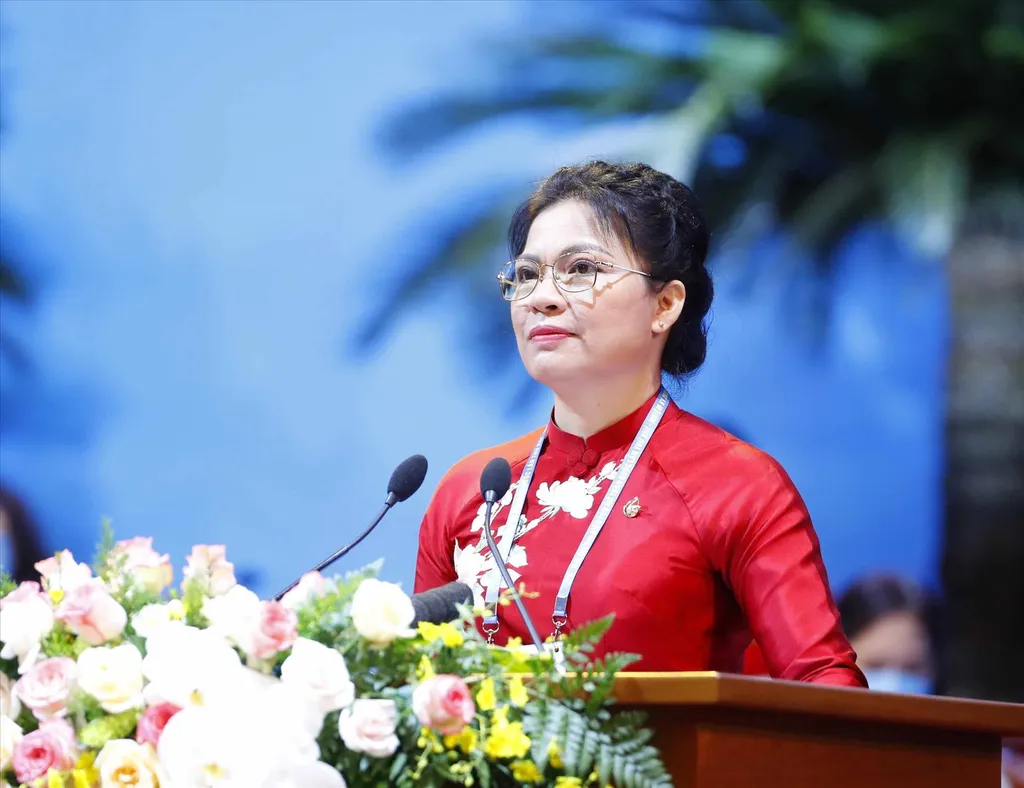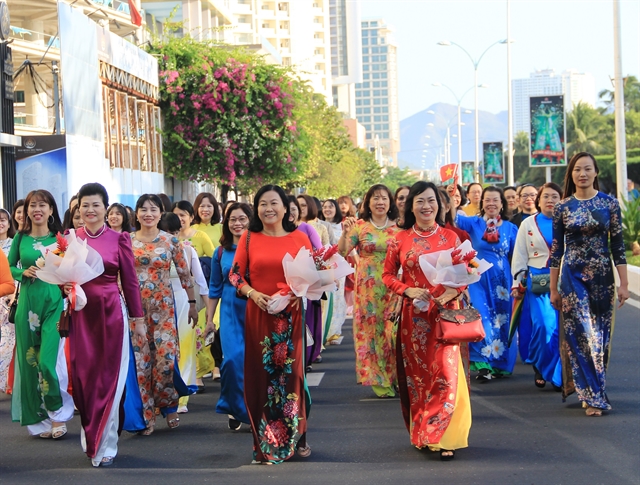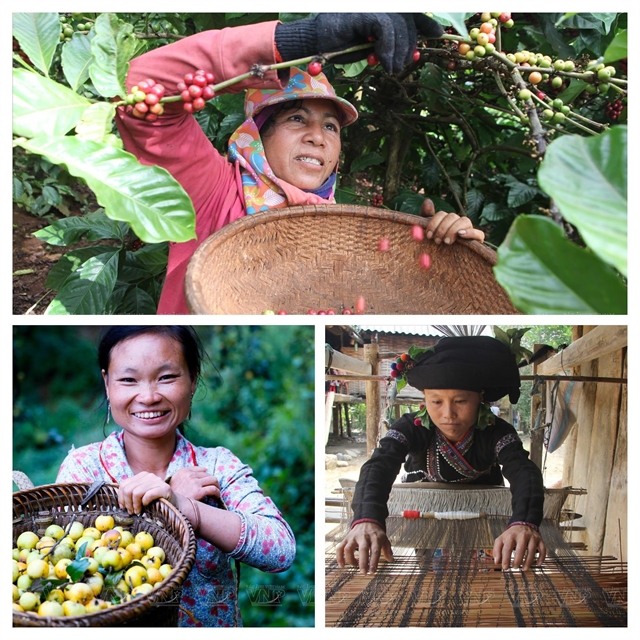 Politics & Law
Politics & Law

 |
| Hà Thị Nga, member of the Party Central Committee and Chair of the Việt Nam Women’s Union. — VNA/VNS Photo |
{ "id": "iW_lIkq3vl", "type": "myToolImages", "data": { "data": "" } }
HÀ NỘI — Vietnamese women have made their presence known across important socio-economic fields, but stereotypes and biases continue to be serious impediments to further advances.
That was the message from Hà Thị Nga, member of the Party Central Committee and Chair of the Việt Nam Women’s Union, speaking to Vietnam News Agency on the occasion of the 113th anniversary of International Women’s Day (March 8).
In the increasingly improved environment for women and gender parity, Vietnamese women have made achievements across all fields with 30.26 per cent of National Assembly deputies female, over half of the ministries and ministry-level agencies with females as key leaders and 29.8 per cent of enterprises are owned by women (ranked 6th in the world), Nga noted.
Female scientific researchers account for about 46 per cent of the total number of human resources for research and development, higher than the world average of only 30 per cent, she said.
However, the biggest challenges are still gender stereotypes that restrict the advances of women in some areas, Nga stressed.
While Vietnamese women enjoy a more significant presence in politics than the global average, only 21 per cent of the key leadership positions are filled by females.
Economically, the percentage of female workers that are subject to unemployment is higher than that of male workers, Nga said, quoting the employment surveys in 2020 (the first year of the COVID-19 pandemic), when Việt Nam had more than 1.2 million unemployed people with women accounting for 56.1 per cent.
Unpaid care work done by women is double that of men, she noted, lamenting that the burden of these stressful tasks is limiting women from taking part in public, social activities, studies to gain knowledge and skills, or even spending time for personal health needs.
In addition, there are many social issues that continue to negatively affect women like poverty, climate change, changing family structures and functions and domestic violence – especially cases that threaten the safety of women and children.
A large number of women have been facing unprecedented instability due to the dual effects of the COVID-19 pandemic such as health issues while falling into poverty and lagging behind in education, skills, and integration opportunities.
 |
| Nha Trang City People's Committee yesterday held an áo dài (traditional long dress) parade featuring 2,000 female officials from the city's offices and agencies to mark International Women's Day. — VNA/VNS Photo Phan Sáu |
In order to solve and overcome these difficulties, the Party and the State will need to continue to pay great attention to the implementation of gender equality goals, implementing guidelines and policies to support and create favourable conditions for women to develop, improve and affirm their roles in vital areas such as politics, economy, and diplomacy, Nga said.
She also urged women to be more proactive in accumulating knowledge and obtaining skills, have a can-do attitude, take advantage of technologies to increase productivity and have time to care for themselves.
“I also hope that women who have succeeded in life will become pioneers, sharing their lessons and inspire women and girls, inspiring them and empowering them to create ‘moving upward movement’,” Nga said.
In the interview, she also discussed efforts to improve the lives of ethnic minority women in remote, economically challenged areas of the country.
In politics, out of the 89 ethnic minority deputies in this tenure of parliament, 44.93 per cent are women (44 persons).
In the field of culture - society - education, ethnic minority women have also achieved certain accomplishments, many of them have become reputable social activists and educators that contribute to the development of the community.
Ethnic minority women also play “a crucial role” in the maintenance and promotion of traditional cultures of their group, one of the defining factors for sustainable development in the new era, Nga said.
With many different forms such as focusing on community tourism development associated with indigenous cultural values or preserving traditional professions, ethnic minority women are the ones who take the initiative to bring the culture of their people to become national and international cultural heritage, she remarked, citing Xoè Thái arts and Chăm people’s Bàu Trúc ceramic making as examples.
Together with Vietnamese women of other groups and classes, women of ethnic minorities are continuing to enrich the traditions and virtues of Vietnamese women in general, building and consolidating the great solidarity of the Vietnamese ethnic groups, making an important contribution to nation-building efforts.
The Việt Nam Women’s Union has kept in touch with the ethnic minority women groups to understand their challenges, and made appropriate proposals to the State and Party to deliver policies that benefit them, Nga said.
The union has been holding frequent training classes to enhance the capacity of grassroots women leaders and officials, and gradually make a change in the mindset and in the cultures of women and girls’ advances.
“Ethnic minority women are now actively adapting to the times,” Nga said.
“I have seen very dynamic women, who are actively participating in women’s association activities, who have made use of preferential loans through the association to improve livelihoods – doing homestay tourism, making traditional products, or growing crops or animals with high economic value.”
Women have realised their role and position and know how to utilise policy incentives to develop not only themselves but the whole community, she underlined.
Hà has sent her best wishes to Vietnamese women both in and outside of the country, wishing them always happy, healthy, joyful, and successful. — VNS
 |




